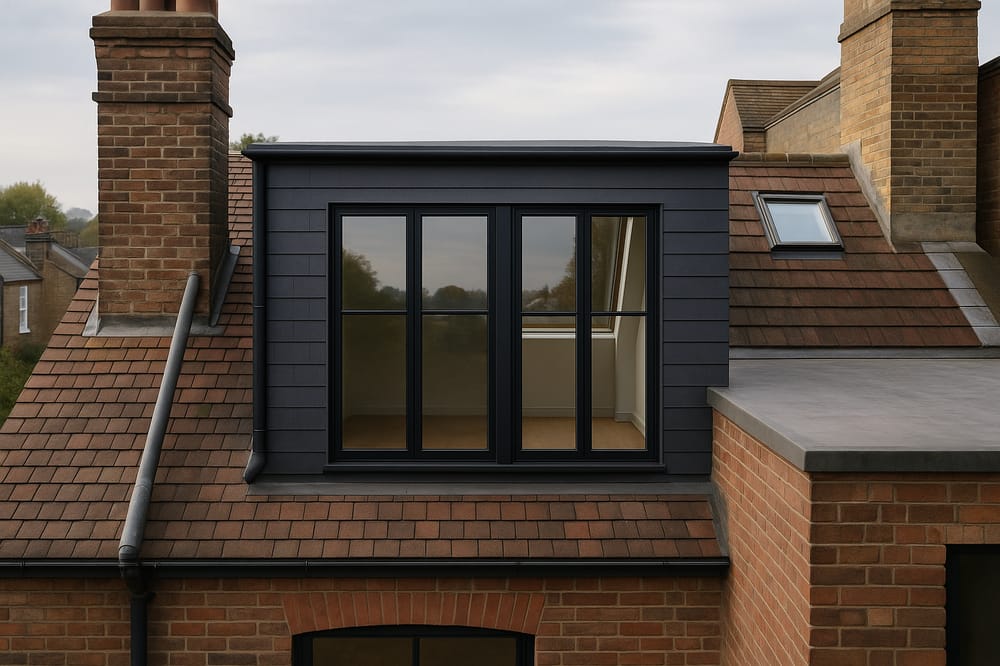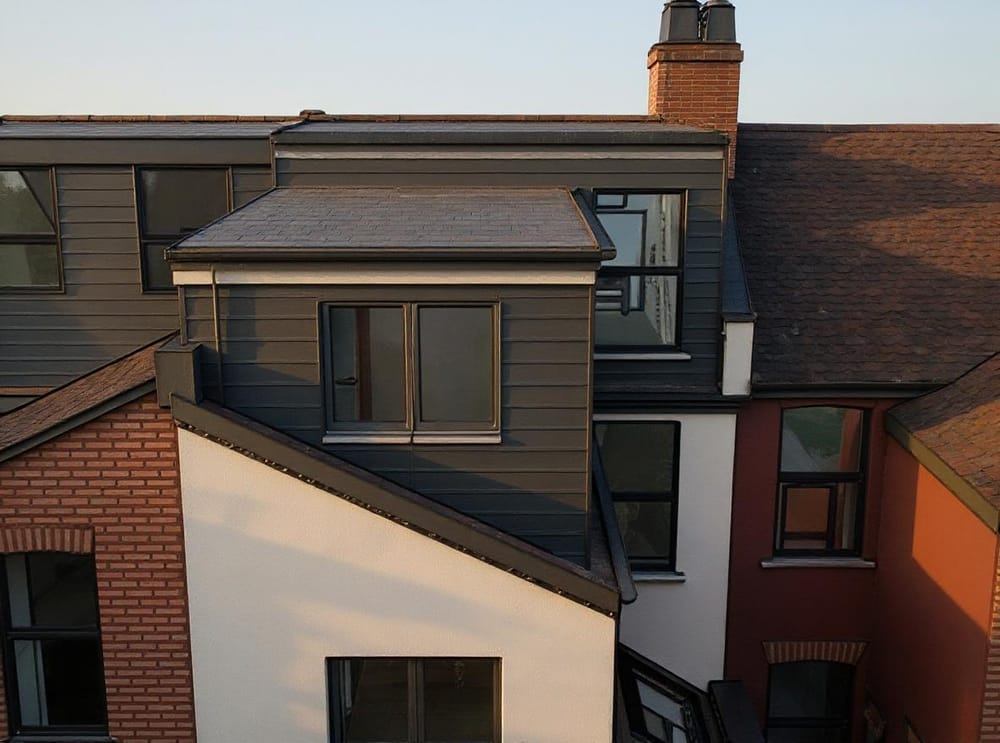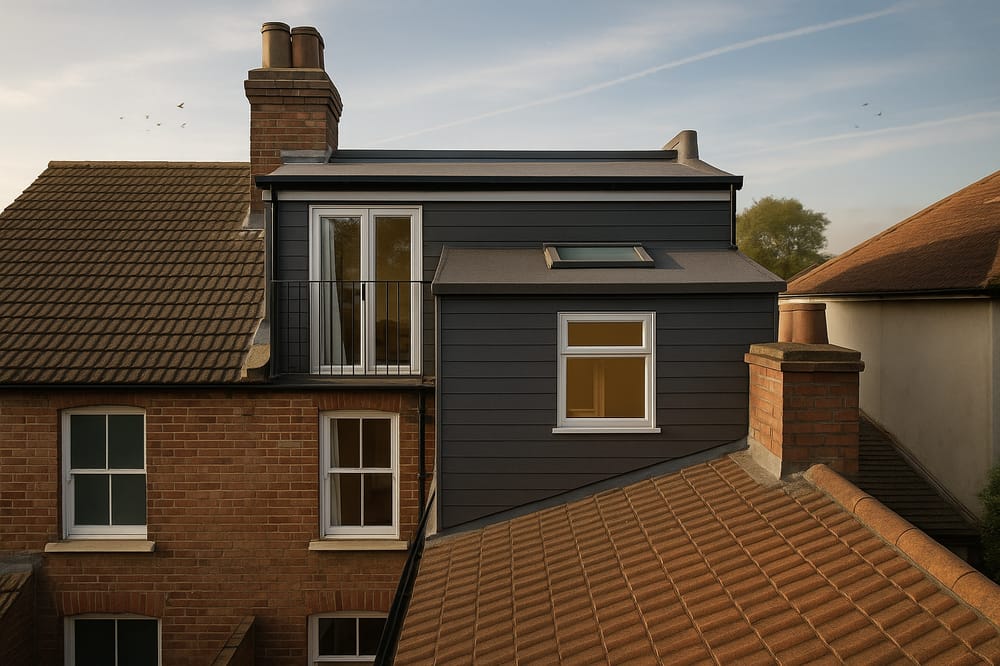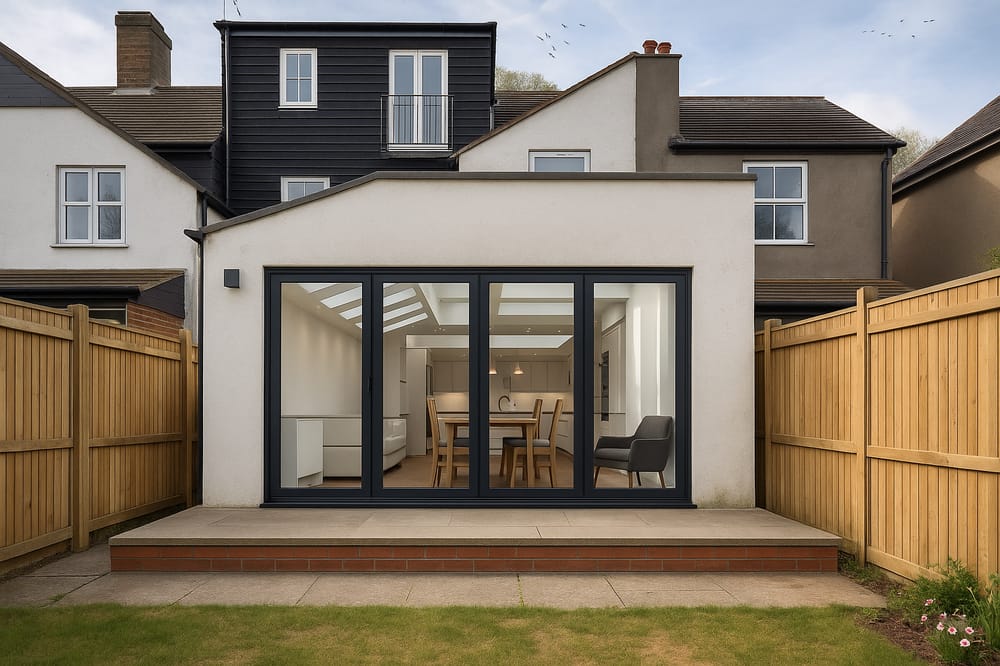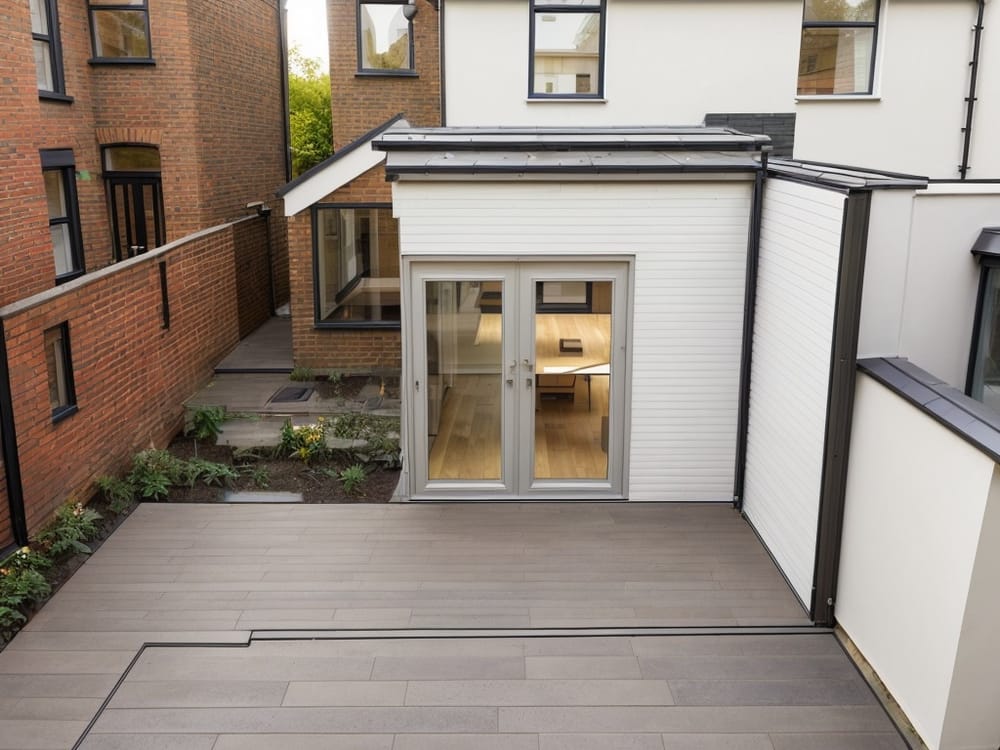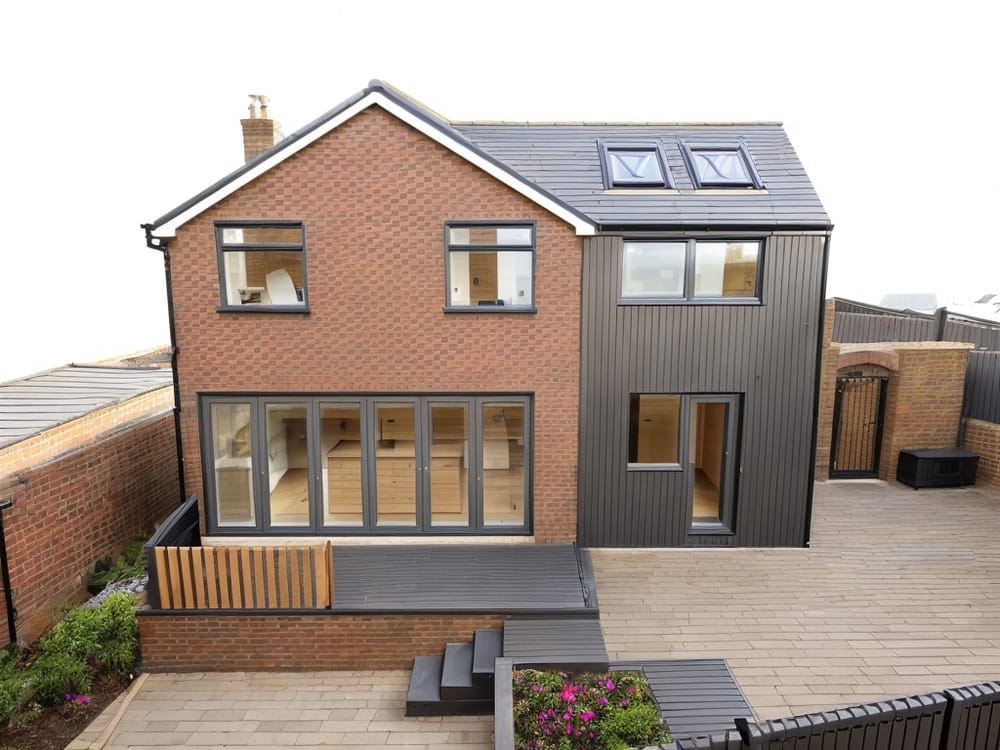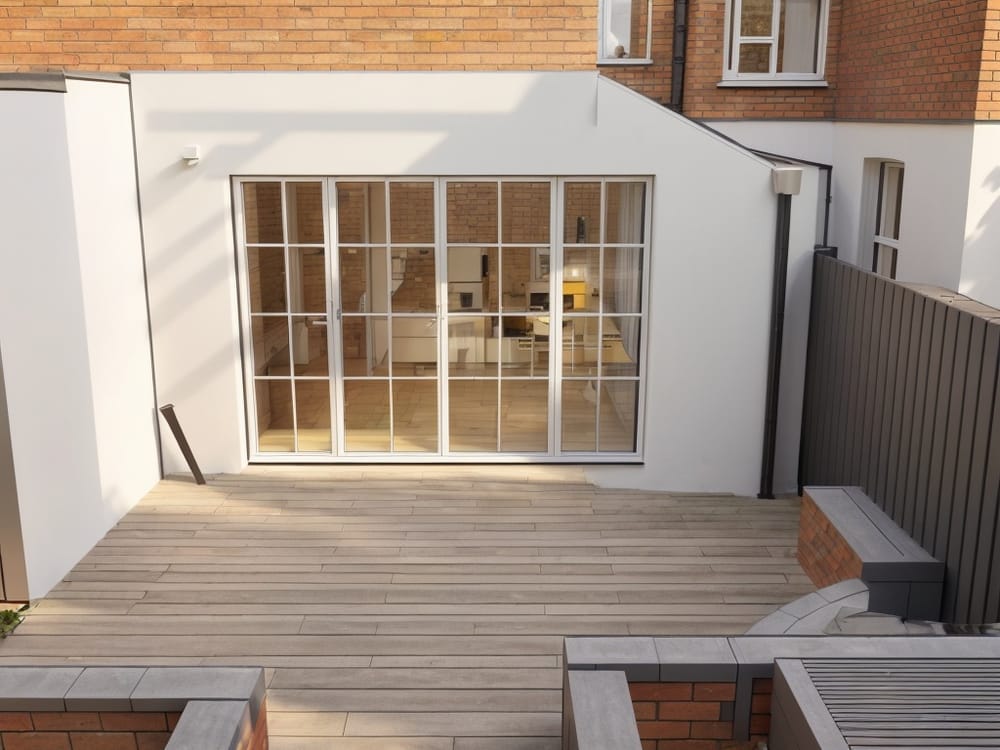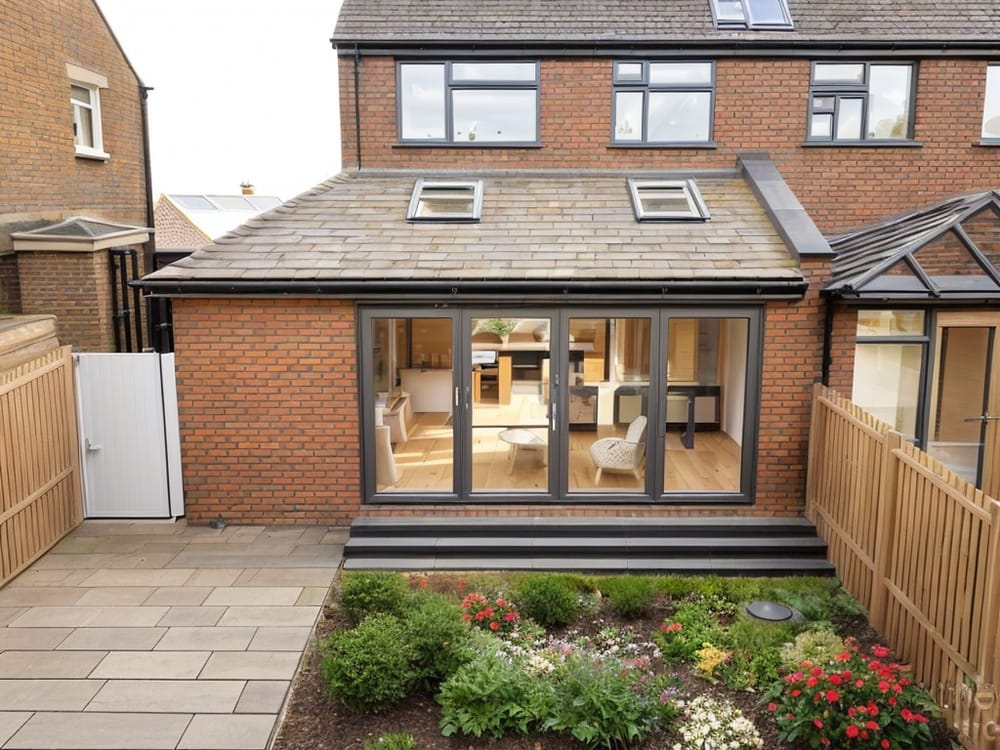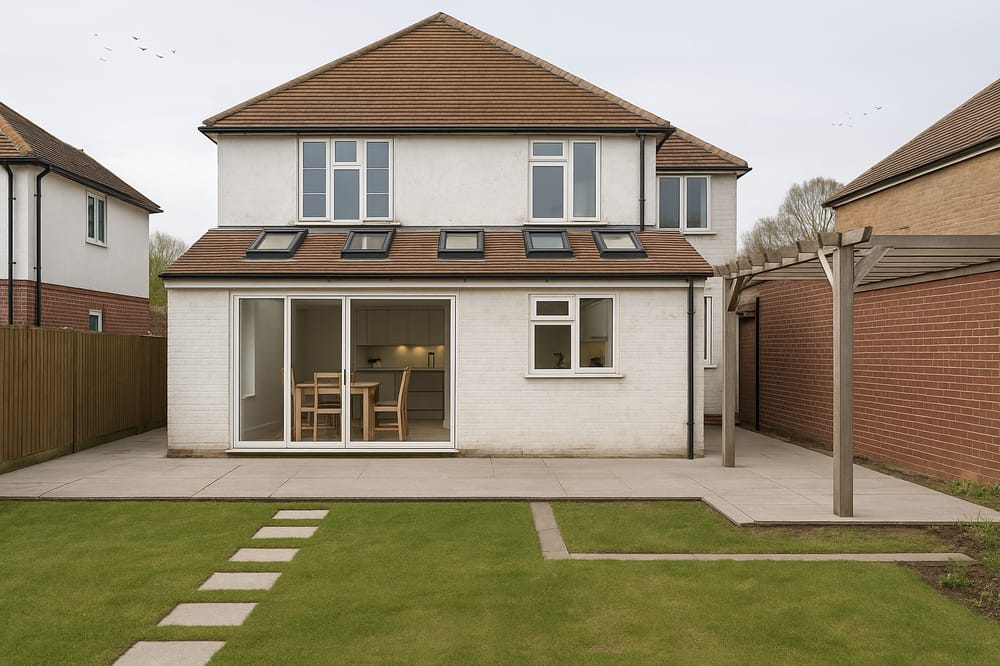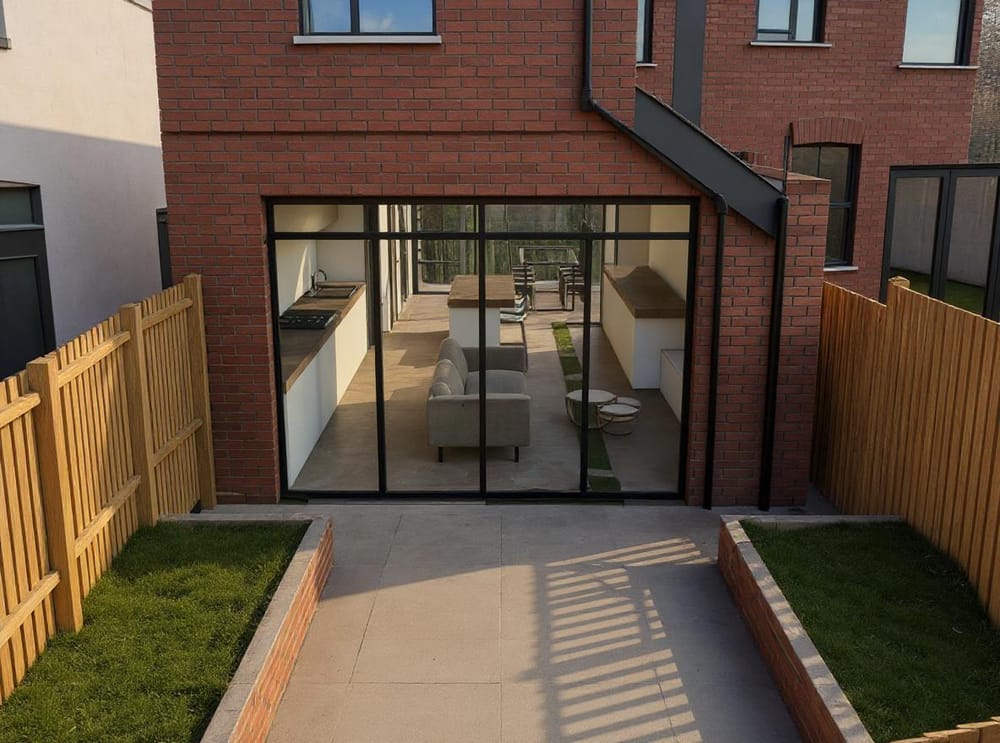Having a roof overhead symbolises two cherished aspects of any home: safety and comfort. Our Happy Homes Survey found that feeling secure is one of the most important qualities in any happy home space.
But there is a lot more to roofs than just shelter. Roof appearance, shape, cost, maintenance and durability will all come into play with your choices as a homeowner. That’s why it helps to know your way around a roof...
Roof Materials
There are a number of factors that affect the appeal of different roofing materials, namely durability, look, and cost effectiveness.
Slate
A common, stylish and long-lasting roofing tile, prevalent throughout Europe. Slate can either be from her in the UK or imported from places like Spain and China, which means slate can range in cost, durability, carbon footprint and even colour.
Slate tile cost per m2: £25-£40
Clay
Clay is an extremely old and trusted roofing tile that is durable yet brittle, and can be susceptible to cracks and decay if improperly mixed. It is commonly identifiable by its orange colour, though a range of colours, styles and shapes are available. Traditionally clay tiles would be handmade, but these days they can be made by machines and are therefore more readily available and cheaper to buy.
Clay tile cost per m2: £15-£30
Fiber cement
Modern advancements and technological processes have allowed for the creation of new materials that can address issues with traditional materials like clay and natural slate. Fiber cement (FC) is lightweight, easy to install, durable and highly affordable. It is also 100% recyclable with a low carbon footprint making it an attractive sustainable option. The only thing lacking is the natural charm that clay and slate provide.
Cost of fiber cement tiles per m2: £13-£25
Zinc
Zinc is one of the most popular metals used for roofing which can either be installed in shingles or sheets. It is both extremely durable and low maintenance, and works well on extensions and modern style homes due to its sleek modern finish. It is one of the more expensive options and has a relatively unsustainable production process, though is 100% recyclable once created. Metal roofs like zinc may require additional insulation against noise from rain and hail.
Zinc cost per m2: £30-£60
Thatched roofs
Thatched roofs are a staple of idyllic country living, made from straw, water reed, combed wheat, and other plants and grasses. The look is unique, typically associated with English country cottages. Though material costs are low, thatching requires niche expertise that will increase a professional’s fees. Maintenance is also high which will increase cost and affect long-term durability.
Thatched roofs cost per m2: contact a specialist!
Other costs to consider
On top of the material costs, you need to consider the cost of installation, maintenance and repair throughout a roof's life. We always recommend hiring a professional whenever attending to your roof, so professional fees need to be carefully considered.
Looking for a tradesperson in your area? Try out our Connect service!
Roof types
As well as different materials to choose from, roofs can take different shapes. The primary choice for any extension or new build project will be between a pitched or flat roof.
Pitched roof
Pitched roofs are what many would consider traditional roofs, sloping downwards from a raised point. There are many different styles of pitched roof, such as:
- Gable: two sloped sides of equal size.
- Hip: four slopped sides, two large and two small.
- Pyramid hip: four sloped sides of equal size.
- Saltbox: two sloped sides, one short and steep, one long and slight.
- M shaped: exactly as it sounds, two peaks with a recessed middle.
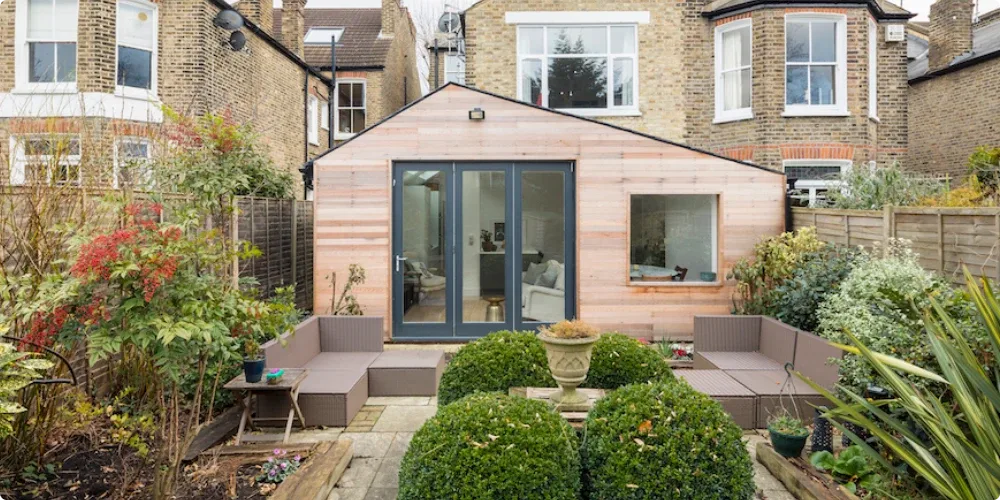
A saltbox pitch gives this small flat a unique look and interior vertical space.
The slope of a pitched roof allows for natural drainage, a factor that needs more careful consideration when taking on a flat roof. The gradient of pitch roofs also needs thought however, as steep slopes are more technically challenging, requiring more expert knowledge and therefore a more expensive service.
Looking for advice from a professional? Book in a free call with the Resi architectural team.
Flat roof
Flat roofs are an increasingly popular roof choice, particularly for home extensions and annexes. As they are less complex than pitched roofs they can often be constructed cheaper and quicker. They also allow the potential for skylights, a hugely popular addition in home extensions that welcome heaps of natural light into a space.
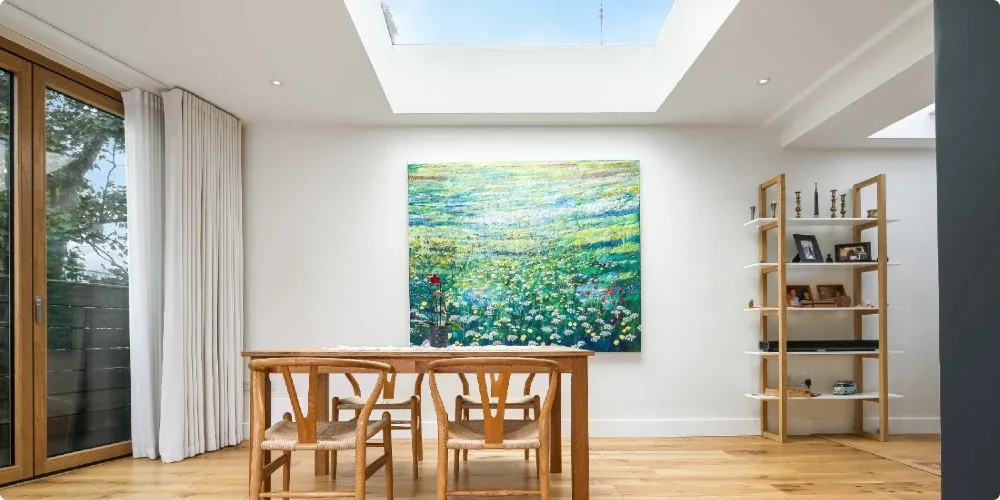
A well-placed skylight on this flat roof extension illuminates a dining table and wildflower painting.
Maintenance
Most areas of the home need general upkeep to prolong functioning use, however roofs are much better at keeping their problems hidden. Not only that, but the effects of unsolved roof issues could be very problematic and expensive to fix. So you should carry out these tasks to ensure the security of your roof.
Check your roof!
Unfortunately, roofs very rarely get the attention they deserve. It can be easy to go years without looking up on the shingles, especially when there is no need to. But the warning signs of roof damage will never be seen without looking, so it’s good to check atleast once a year.
Clear away moss
Moss is roof enemy number one. Not only does it hold water, damaging most building materials over time, but it can sprout underneath and in between shingles. By growing between the cracks, moss can actually lift, move and even completely dislodge shingles creating space for leaks. When removing moss we always recommend getting a professional on board. Roofs are places you can’t afford to make a DIY disaster.
Unclog gutters
It’s easy overtime for gutters to fill with debris and dirt. If water cannot properly drain it may back up and cause huge problems. This is especially important with drainage on flat roofs as backed up water could linger for long periods and do serious damage.
Trim nearby branches
If your roof is overshadowed with trees in any way, trimming the trees back can be a great way to avoid future problems. Not only will overgrowing branches drop leaves and small twigs into your gutters, but a snapped branch in a storm could make some very expensive mess.
Insulate your roof properly
Effective and functioning roof insulation is a tricky thing to get right. A roof needs to stop heat from escaping, but if not properly ventilated a roof can collect moisture in condensation. This lingering moisture can rot and weaken your roof from the inside, which then becomes a real problem. Regularly monitor your insulation and ventilation in your home to avoid these costly repairs.

The moss and lichen forming on this clay roof could cause some real problems.
The professionals
At Resi, we strongly recommend hiring a professional whenever tending to your roof. Roofs are complex beasts and mistakes or oversights can be very costly. Here are some professionals you may need to consult:
Roofing contractors
Though most builders and contractors will have general roof knowledge, there may be situations where you need a specialist. Specialists will likely be required in complex situations, such as irregularly shaped roofs, particularly steep pitches or roofs with large amounts of damage.
General roofing contractor cost: £18-£25 per hour
Structural engineers
Structural engineers specialise in the science and safety of structural strength, and their expertise may well be required in a roof works. Roofs are heavy things and need a lot of support to provide shelter safely, so it’s always good to get the opinions of an expert.
General structural engineer cost: £400 fixed fee or £90 per hour.
Architects
When designing any new space, whether it’s a new build or extension, we always recommend you consult an experienced architect. Their knowledge of designing homes will come in very handy when picking a roof type and material, ensuring you get the roof that fits your desired space and style.
At Resi, our services include:
- Architectural design
- Measured surveys
- Planning
- Building regulations
- Finance
- And even being paired with trustworthy tradespeople
With this complete service you can be sure you’re getting the right support, wherever you are in your journey.
Get a quote from Resi in minutes with our handy quick quote tool!

Get in touch with the Resi team.
Summary
- There are lots of roofing materials available, each with different properties and price ranges.
- Roofs also come in various shapes and sizes. The one you choose will depend on what you want from your space.
- Roofs need to be looked after. Don’t forget to check on yours at least once a year and take appropriate action to prevent damage.
- Because of their complexity, we suggest all roof construction, maintenance and repair is carried out by a professional.
Looking for a tradesperson in your area? Try out our Connect service!






